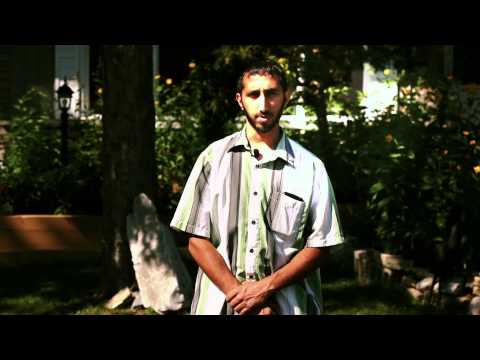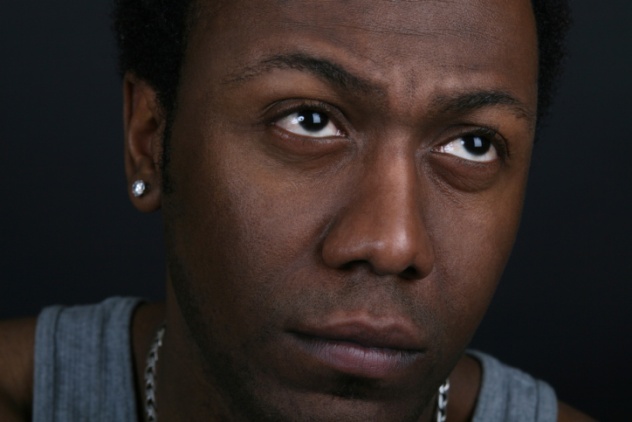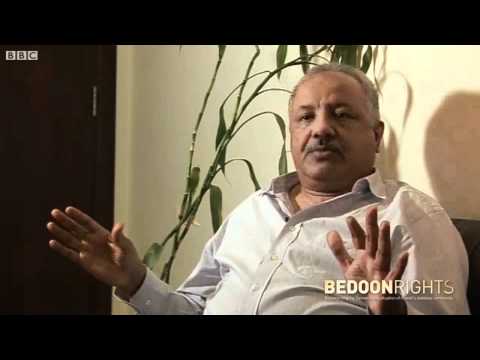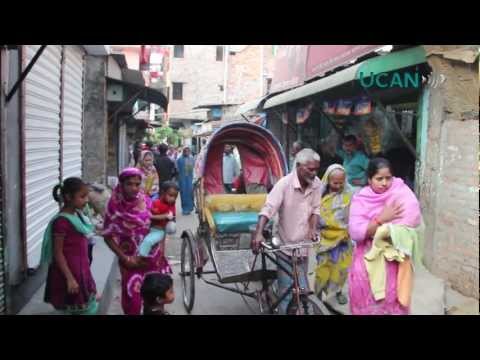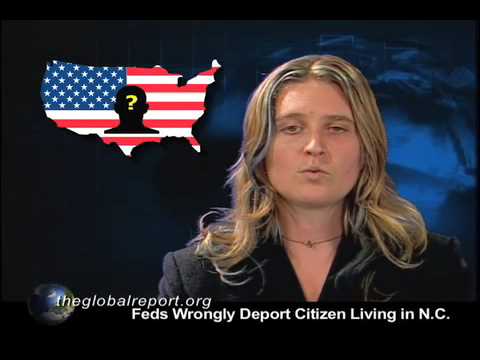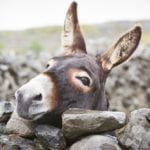10 Mikhail Sebastian
John Donne’s famous observation that “No man is an island” is not lost on Mikhail Sebastian. His life began under Soviet rule in what is modern-day Azerbaijan. But a succession of misfortunes sent him country- and continent-hopping until he eventually found himself stranded on an island with no country to call home. Sebastian’s ordeal began in the late 1980s when brutal conflict broke out between Armenian secessionists and the then-communist Azerbaijani government. The violence drove Sebastian, an ethnic Armenian, to retreat to Armenia when his aunt was stoned to death. However, a glut of Armenian refugees forced him to relocate to Turkmenistan. There, Sebastian had to contend with the challenge of being a gay man in a country that criminalized male homosexuality. Unsafe and unwelcome, he traveled to the United States in 1995 and applied for asylum. Sebastian’s appeal was rejected, but he defiantly remained in the country for years. Sebastian’s illegal sojourn in the Land of Opportunity earned him a six-month stay in prison. He was released in February 2003, but his freedom was complicated. By now, his nationality was as much a historical relic as the Soviet Union itself. Stuck between a rock and a nonexistent place, Sebastian was allowed to work and study in the United States under the condition that he could never leave the country. Then, in 2011, he made a fateful misstep while traveling to the island of Samoa to ring in the new year. Unbeknownst to Sebastian, the western portion of Samoa is an independent nation, making his eventual trip there a violation of the terms for his US residency. A judge barred Sebastian from reentering the United States. Sebastian spent more than a year confined to the nation of Samoa, where he had to live with a local family. His income—a $50 weekly allowance. However, his fortunes improved in 2013 when the US granted Sebastian a special humanitarian parole, which allowed him to return.
9 Deepan Budlakoti
As cases of statelessness go, Deepan Budlakoti’s is a legal oddity. No one disputes that he was born in Ottawa, Canada. Nobody questions whether his parents, Indian nationals who themselves eventually became Canadian citizens, were legally in the country when he was born. Budlakoti even received a Canadian birth certificate and a passport. Yet, according to the Canadian government, he not only isn’t a citizen, but he should be deported to a country which likewise refuses to claim him as its own. Budlakoti’s immigration woes began with his own lamentable life choices. In 2010, the then-19-year-old was convicted for drug and weapons trafficking. At the end of his sentence, Budlakoti received some startling news: Canada’s border agency intended to have him deported to India. Its justification—the legal status of Budlakoti’s parents. According to Canadian law, citizenship is automatically granted to all children born in the country, except those whose parents were foreigners employed by a foreign government at the time of birth. Budlakoti’s parents had arrived in Canada as employees of India’s High Commission. Although Budlakoti maintains that they terminated their employment two months before he was born, the government argues otherwise. Accordingly, immigration officials classified him as a permanent resident and swiftly revoked that status. However, in attempting to remove Budlakoti from the country, the Canadian government encountered its own legal snag: India also refused to acknowledge him as a citizen. With no country willing to claim him, Budlakoti couldn’t leave. He also had no chance of gainful employment, education, or even receiving health care if he stayed. Budlakoti decided to fight for his citizenship in court but lost. The court even claimed that in spite of being rejected by both India and Canada, he is not stateless on account of never having applied for citizenship in either country. In the aftermath, Budlakoti has been forced to live off donations. He continues his fight in hopes of reaching the Supreme Court, a struggle made possible by attorneys who work either pro bono or at a generous discount.
8 The Children Of International Surrogates
While necessity is the undisputed mother of invention, the legal complications mothered by invention are often mired in uncertainty and solved by ad hoc determinations. With regard to parenthood, the increasing ease of travel and communication has given rise to international surrogacy. It’s a practice which has greatly benefited aspiring parents but has also created a quagmire for countries trying to determine the rightful nationality of the resulting children. While most nations have established a set of clear-cut rules for determining the nationalities of babies born by traditional means, things get far murkier for babies conceived and delivered on behalf of parents who live abroad. While international surrogacy has become an important source of income in places like Thailand and India, which are major destinations for would-be parents in search of surrogates, some customers hail from countries that ban commercial surrogacy. As a result, those babies are often refused entry to their intended country. Worse still, countries which allow international surrogacy may sometimes also refuse citizenship to babies who were born within their borders but intended for foreign parents. Examples of international surrogacy controversies include the case of Kari Ann Volden. Volden came from Norway, which prohibits commercial surrogacy. Determined to have a child of her own, she ventured off to India and purchased the services of a surrogate who bore twins. But neither Norway nor India acknowledged the children as citizens. She would go on to spend two years resolving the problem while the twins were forced to remain in India as stateless babies. In another case, a prohibition on commercial surrogacy prevented a gay Belgian couple from bringing a child they had created with a Ukrainian surrogate into Belgium. That child spent 16 months in a Ukrainian foster home and an additional year in an orphanage before the couple finally won out. As these arrangements become increasingly common, it seems only inevitable that increasing numbers of children will spend the first years of their lives surrounded by instability and legal turmoil.
7 Baby Ferouz
In November 2014, Ferouz Myuddin was just 11 months old. In spite of being too young to understand most words, let alone why he was nationless, this tiny child would ultimately have a sizable impact on Australia’s immigration policy. Baby Ferouz was delivered in a Brisbane hospital in November 2013. Three months prior, his parents had voyaged to Australia from Myanmar by boat as would-be refugees. As part of Myanmar’s Rohingya community, they had been stripped of basic rights and citizenship status. Ferouz’s father had lived as a fugitive since age seven after his own father was executed by Myanmar’s army. Desperate to spare Ferouz and their three older children similar hardships, the parents requested a protection visa for the infant, hopeful that a Brisbane birth certificate which he had been issued would guarantee him certain rights. They were sorely disappointed. Although Baby Ferouz been born on Aussie soil, his parents were “unauthorized maritime arrivals.” Australia’s immigration minister maintained that Ferouz, along with more than 100 other babies in the same metaphorical boat as him, should inherit his parents’ legal status. Accordingly, he and his parents would remain at a detention center and possibly be deported. The distraught Myuddins decided to fight it out in court only to taste bitter defeat. However, the family persevered. Attorneys for the Myuddin family appealed the case and vowed to file similar claims on behalf of the scores of other babies affected by the ruling. Just three months after the Myuddins’ initial courtroom setback, the Australian government reversed its decision and supplied protection visas to Ferouz and 30 other babies. The parents, in turn, were allowed to stay and guard over their children.
6 Thousands Of Denationalized Dominicans
Residents of economically moribund, natural-disaster-ravaged Haiti have long ventured into their wealthier geographic neighbor, the Dominican Republic, to work on sugar plantations, work in construction, and clean hotel rooms for scant wages. Over the course of those trips, babies sometimes happened, and the Dominican government traditionally responded by issuing them birth certificates and allowing the children remain as Dominican nationals. That all changed in 2013 when staggering numbers of Haitian descendants were stripped of their citizenship in the midst of mounting social and political discord. Part of the impetus for this change was the 2010 earthquake which decimated Haiti. The utter destruction wrought by the quake had sent a tsunami of people across the Dominican border in search of shelter, worsening preexisting animus between the groups. Haitians had historically been eyed with suspicion and an air of haughty derision by much of the Dominican populace, and with so many Haitians flowing into the country, immigration reform became a prominent issue. Then, court ruling threw open the steadily cracking floodgates of denationalization. A Dominican constitutional court decided that Dominican residents born from 1929–2010 to foreign parents would not be regarded as citizens. The fates of some 200,000 Haitian Dominicans, some of whom had never spent a day in Haiti, were now in jeopardy. Some lost their jobs, while others who had spent years studying and preparing to pursue careers in the Dominican Republic saw their dreams suspended in legal amber, as they were barred from attending universities or seeking employment. Some Haitians made a bid to remain in the country by registering with a newly implemented non-citizens program, but not everyone was so inclined. Over 41,000 newly stateless Dominicans voluntarily departed for Haiti. However, in the wake of international disapproval and the threat of tourism boycotts, the Dominican Republic has adjusted its stance and implemented a system in 2015 for granting citizenship to those who could prove that they were born in the country.
5 Mona Kareem
Mona Kareem is a self-described writer and poet and a doctoral student in comparative literature. She has raised awareness about the struggles of disenfranchised peoples through multiple conference talks, publications, interviews, and books. With all of her laudable accomplishments, one might never guess that she also grapples with the burden of statelessness. Born in late-1980s Kuwait, Kareem is a member of the country’s Bedoon minority. The Bedoons, whose name is Arabic for “without nationality,” are the progeny of nomadic Bedouin tribes. In 1961, they became unwitting legal casualties of Kuwaiti independence from Britain, when the newly emancipated nation required them to apply for citizenship to be recognized as legal residents. Some Bedoons, ignorant of the consequences, neglected to do so. Others, hampered by illiteracy, simply lacked the knowledge and resources needed to furnish the required documentation. Kareem’s parents applied for Kuwaiti citizenship but were ultimately met with silence. For 25 years, the Bedoons managed a passable existence, denied a political voice but allowed to work. But in 1986, Kuwait forbade businesses from hiring anyone without a state-issued passport, summarily terminating thousands of Bedoon-held jobs. It was in this world that Kareem was reared. Schoolmates and teachers ostracized her. Police officers regularly mocked, harassed, and even took physical liberties with her. Luckily for Kareem, she had an out—her highly capable brain. In 2011, she relocated to New York to pursue a doctorate at Binghamton University after qualifying for a special Kuwaiti passport for people with an “unidentified” nationality. Since relocating, Kareem has used her studies as a platform to spread much-needed awareness. As of this writing, she still lives in the United States but is unable to travel anywhere else.
4 Steven
Imagine being unable to prove that you legally exist. It sounds like the extension of a Cartesian thought experiment, but for a UK-based man who goes by the alias “Steven,” it’s a horrifying reality. The details of Steven’s birth are a mystery even to him. He was delivered in either Zimbabwe or Mozambique. He has no evidence of his mother’s existence besides his own and never knew his father. Steven’s mother was a traveling vendor, and for the years he spent with her, they journeyed throughout Zimbabwe selling goods. When he was 15, she placed him in the care of a relative. Three years later, she completely vanished. With no parent or paper trail to confirm his origins, Steven found it impossible to get a valid ID, open a bank account, or get a job. In adulthood, Steven occupied himself with a political group that challenged Zimbabwean dictator Robert Mugabe. Unfortunately, his activism made him the target of government officials, forcing Steven to flee. He procured a fake ID and retreated to London. There, things began to look up. He fell for a Ugandan student and fathered a child with her. He found work at a rugby stadium where employees ignored his immigration status. His happiness was short-lived, however. Steven’s girlfriend, who had also provided him shelter, returned to Uganda with their child. Steven, sans legal identification, couldn’t follow. Businesses grew stricter about employing immigrants. Soon, Steven was out of a job and living on the streets. His friends shunned him after discovering his immigration status. Things got so desperate that he even asked police to arrest him just to have a place to stay. This also failed. Since there’s no destination to legally deport him to, Steven has remained in the UK. He now lives with a girlfriend and her two children and has begun volunteering for a crisis center.
3 The Bihari
For the approximately 300,000 Bihari people living in Bangladesh, life is an exercise in persistent bleakness. An estimated 94 percent of the population is illiterate. For the few who can read, tuition fees cancel out any chance of attending a secondary school. Their living conditions are equally dismal. The Bihari live in mud-brick buildings in slum-like encampments, where 10-person families reside in single rooms, and there’s only one toilet for every 90 families. The Bihari are used to this kind of destitution. They’ve been experiencing it for decades as a consequence of generational statelessness. Their struggles are rooted in the 1947 division of India into India and the Islamic Republic of Pakistan. An estimated one million Bihari eagerly flooded into East Pakistan, which itself was later engulfed in sectarian violence. In 1971, East Pakistanis clashed with their more dominant western counterpart for independence, culminating in the founding of Bangladesh. A number of Bihari who had backed West Pakistan during the conflict were deported, while others voluntarily relocated to Pakistan. The remaining Bihari clashed with newly empowered Bangladeshis and were subsequently stripped of their belongings and transferred to camps throughout Bangladesh. Pakistan agreed to claim 163,000 of the dispossessed Bihari but no more, effectively marooning the rest in Bangladesh. For decades, neither Bangladesh nor Pakistan would claim the Bihari who remained in former East Pakistan. They lived in tents and regularly clashed with rival ethnic groups in the area. Finally, in 2008, the Bangladeshi government extended citizenship status to the 150,000 Bihari who were children born during or after the 1971 war that birthed the country. The move granted half of the population voting rights and at least some semblance of education opportunities. However, extreme poverty and unequal opportunities continue to plague the Bihari with no obvious end in sight.
2 Eliana Rubashkyn
Since 2008, South America has accounted for an estimated 80 percent of the world’s reported transgender homicide victims. Such staggering danger has driven individuals like Eliana Rubashkyn, a transgender woman from Colombia, to seek sanctuary abroad. However, in attempting to escape persecution, Rubashkyn encountered a new set of hurdles which ultimately left her stateless. Rubashkyn, the target of repeated murder attempts in her native Colombia, relocated to Taiwan on a government scholarship to pursue an MBA in Health Administration. There, she also underwent hormone treatments to make her long-desired physical transition from male to female. Months of drastic transformations made it necessary for Rubashkyn to update the gender listed on her passport. So she flew to Hong Kong, the location of the nearest Colombian consulate. Rubashkyn hadn’t banked on her gender reassignment opening up a rabbit hole of legal iniquities. Upon arriving at the Hong Kong airport, she was detained, addressed aggressively, and threatened with deportation. Faced with the prospect of possibly being killed in Colombia, Rubashkyn panicked. She used her smartphone to plead with friends for help. Rescue materialized in the form of a Hong Kong–based LGBT rights group called Rainbow, which petitioned the government to allow her to enter Hong Kong. To stave off deportation, Rubashkyn had to seek asylum in Hong Kong, effectively relinquishing her Colombian citizenship. As a nationless refugee, she couldn’t work or study and could only survive on meager financial assistance. In spite of her troubles, she continued hormone treatments, which had unexpected ramifications. At one point, the physiological stress of the treatments caused her to faint in public. She was brought to the emergency room, where things took a turn for the horrifying. Hospital staff had Rubashkyn committed to a psychiatric ward based on her gender dysphoria. Again, Rainbow intervened. The group helped Rubashkyn to leave the country and resettle at a New Zealand–based center for refugees.
1 Mark Lyttle
Throughout his life, North Carolina native Mark Lyttle struggled with bipolar disorder and cognitive difficulties. He was also troubled in many other ways. Raised in mental institutions and group homes, he had a history of running afoul of the law. In 2008, when the then-35-year-old committed misdemeanor assault, his life was thrown into complete disarray. A clerk erroneously recorded his name as an alias, his birth country as Mexico, and his nationality as “Alien” in the crime database. The outcome was both surreal and terrifying. An officer from Customs Enforcement (ICE) was dispatched to interrogate Lyttle. Lyttle’s self-described mental illness and apparent belief that he was being offered a vacation to Mexico apparently dissuaded no one from trying to deport him. Instead, the interrogator obtained a false affidavit from Lyttle, which identified him as an undocumented immigrant. Most alarmingly, no one from ICE ran a standard background check on him. If they had, Lyttle’s US citizenship would have been proven and the months which followed would have happened very differently. Lyttle was shipped off to an immigrant detention center in Georgia, where the harsh conditions led to a suicide attempt. Lyttle, finally understanding the ugliness of his situation, tried to proclaim his American citizenship but was rebuffed. In December 2008, he was sent to Mexico. Despite speaking no Spanish, Lyttle allegedly managed to score odd jobs and find temporary refuge with several shelters and a church. He eventually attempted to reenter the US, but border agents flagged him as a deportee and quickly returned him to Mexico. From there, things only got worse. According to Lyttle, Mexico then deported him to Honduras. Mexican officials had discovered that he wasn’t Mexican but didn’t believe that he was from the US. Now totally lost, he allegedly traveled—mostly by foot—to El Salvador and Guatemala. While the specifics of these claims are unverifiable, it is known that Lyttle ended up in Guatemala, where he was brought to a US embassy. Officials reached out to his family, which had been fruitlessly searching for him in America. After confirming his nationality, he was allowed to return to the US in April 2009. Upon returning he was immediately arrested and scheduled for deportation. Only with help from a seasoned immigration lawyer and media pressure did Lyttle’s family avert another wrongful expulsion.

